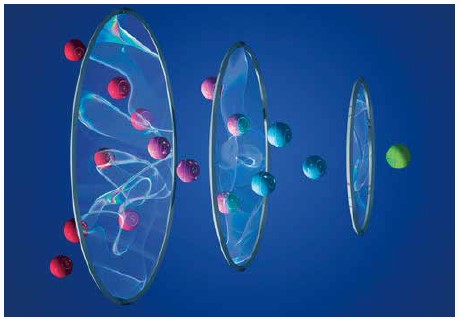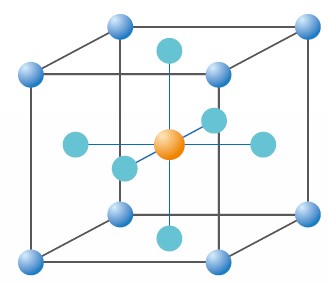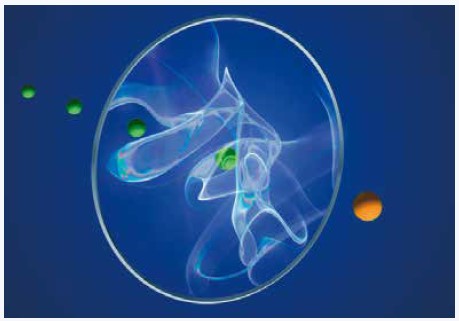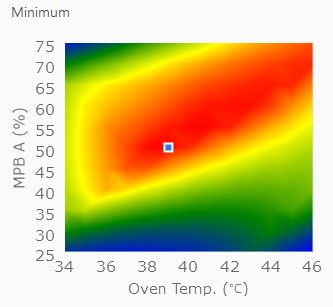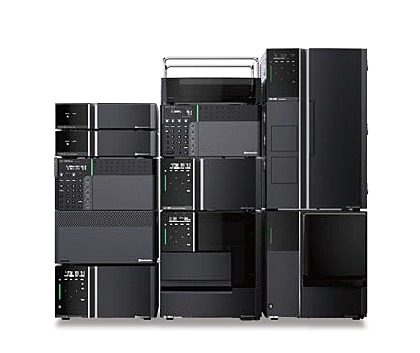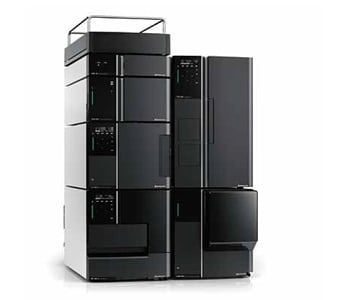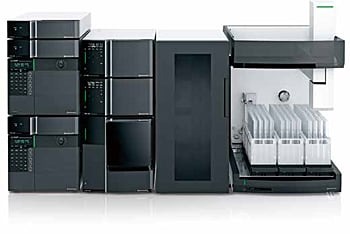The Fine Art of Method Development
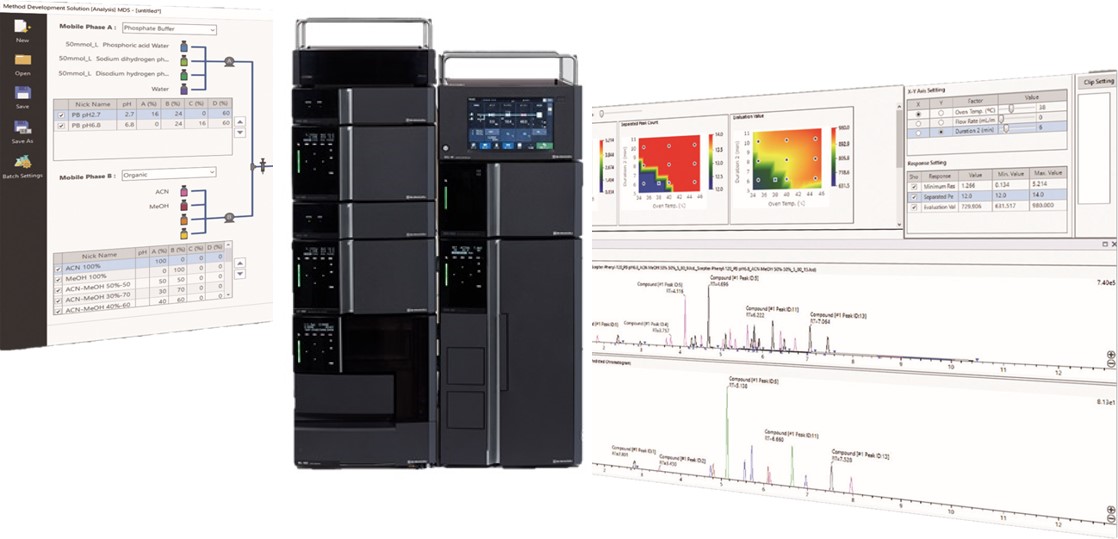
AQbD requires efficient data acquisition, and in accordance with the experimental design. Factors which affect analytical results are identified by statistical methods, and the effective range of parameter settings is visualized as a design space. This science and risk-based approach ensures the development of robust, reliable analytical methods without relying on operator experience or intuition. LabSolutions MD allows for automation of the three phases of the method development workflow: screening, optimization and the evaluation of robustness.
Efficient method screening
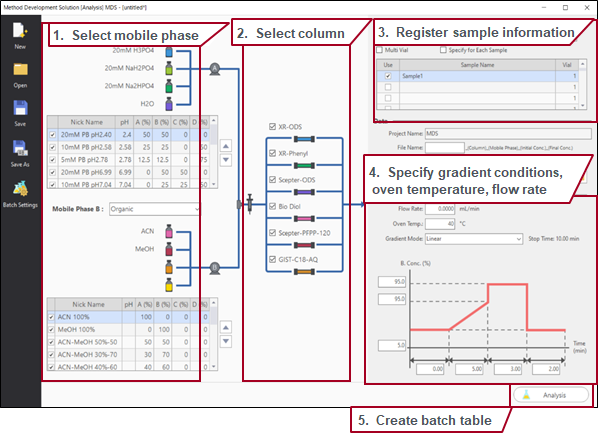
In LabSolutions MD the process of creating a large number of different gradient method files and the corresponding batch table can be completed quickly by simply following a few steps in the easy-to-use graphical user interface (GUI). Mobile phases and columns to be tested can be selected with a single click, and a comprehensive sequence table including column equilibration and blank runs is generated automatically. This not only improves operational efficiency, but also helps to reduce the risk of human error.
Analytical Quality by Design (AQbD)
AQbD is recommended by the International Council for Harmonization (ICH) to emphasize rigorous scientific foundation and risk assessment in the development of analytical methods. It comprises a comprehensive evaluation of the analytical conditions without relying on an operator’s experience or intuition. Using a systematic "Design of Experiment" (DoE) approach, significantly reduces the time and effort required for method optimization. From a specified set of initial experiments, LabSolutions MD visualizes the factor-response relationship and allows identification of optimum separation conditions at a glance. Computer simulation of chromatograms offers valuable information with regards to method robustness.
Automated Gradient Optimization
- LabSolutions MD also offers a streamlined solution for optimizing gradient conditions in analytical method development. Utilizing an advanced AI algorithm, it simplifies the identification of the ideal gradient settings based on specific separation criteria.
This innovative tool eliminates the need for a manual "trial-and-error" approach and individual data analysis. Instead, LabSolutions MD automatically generates and adjusts gradient conditions in real time, providing an efficient way to create reliable, optimized analytical methods in an overnight experiment. -
Prediction of Method Robustness
It is important to validate the robustness of the chosen conditions to evaluate how small changes
will affect the chromatographic result, and to ensure reliability of the analytical method. Iterative experimental design automatically generates a batch table for analyzing a small range of variations in each of the parameters that are determined to have a distinct effect on the separation, such as % organic modifier or oven temperature. The resulting chromatograms show whether the chosen variations result in acceptable (or any) changes in retention of the analytes.
Explore more solutions for your analysis
Shimadzu offers a broad range of LC and SFC solutions in both analytical and preparative scale, with a variety of optical or MS detectors and suitable software solutions to meet customer requirements.
-
Versatile and reliable SFC solutions, ideal for combination with MS detection.
-
Small, yet powerful single quadrupole mass spectrometer.
-
Compact HPLC and UHPLC systems with advanced Analytical Intelligence features.
-
Ease-of-operation in a flexible set-up for preparative LC applications.
-
LabSolutions analytical data management software.
-
Shimadzu solutions for pharma and biopharma.
Related Documents
-
Technical Report
Efficient method development based on Analytical Quality by Design with LabSolutions™MD software.
-
Technical Report
Efficient Method Development by automated pH Screening with LabSolutions MD.
-
Technical Report
Automated Gradient Optimization based on AI Algorithm for LC Method Development.
-
Application
AQbD based method development for pharmaceutical impurities.
-
Application
Efficient Method Development Using Single Quadrupole Mass Spectrometer.
-
Application
Efficient Method Development for Synthetic Peptide and Related Impurities.




